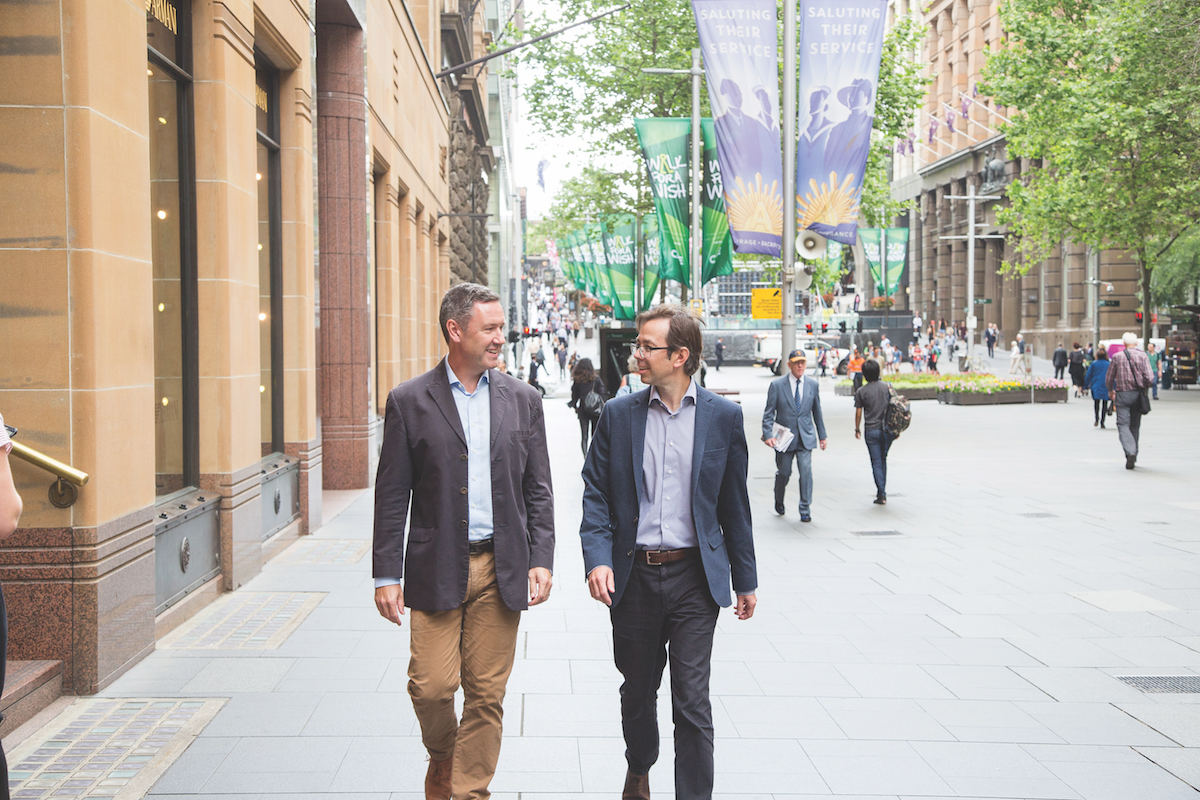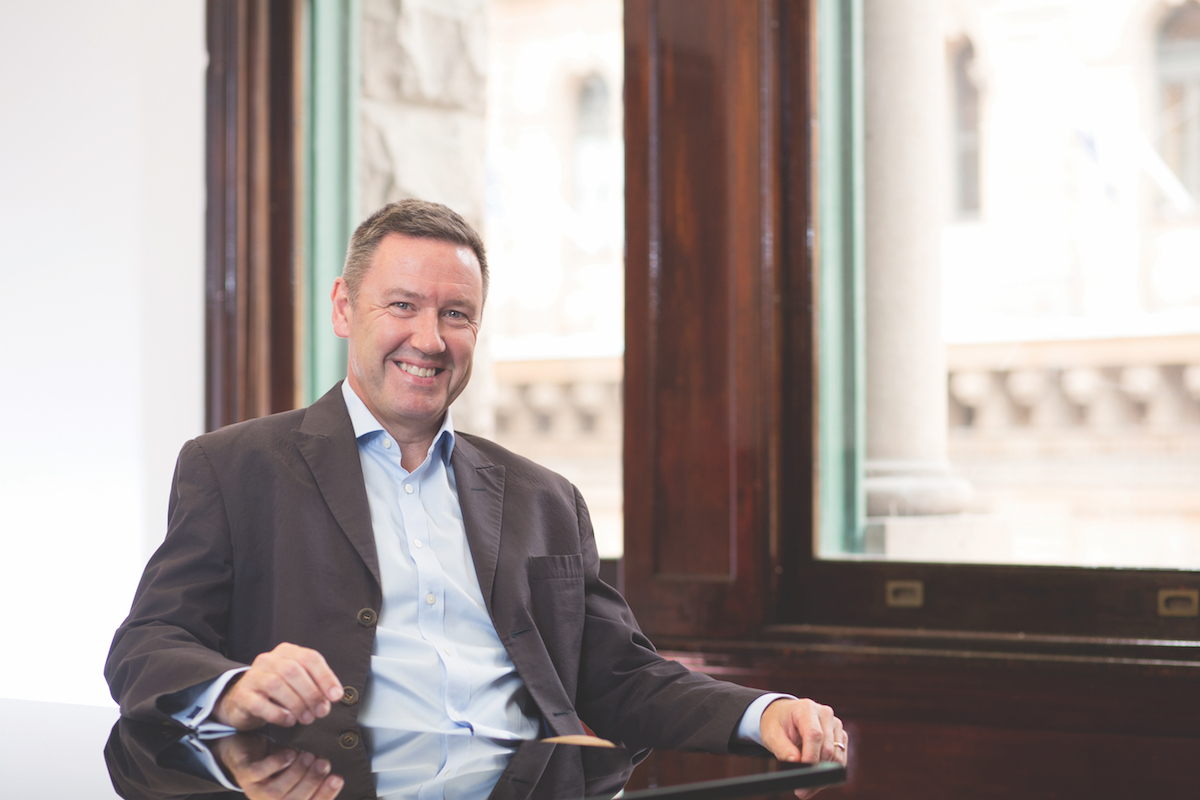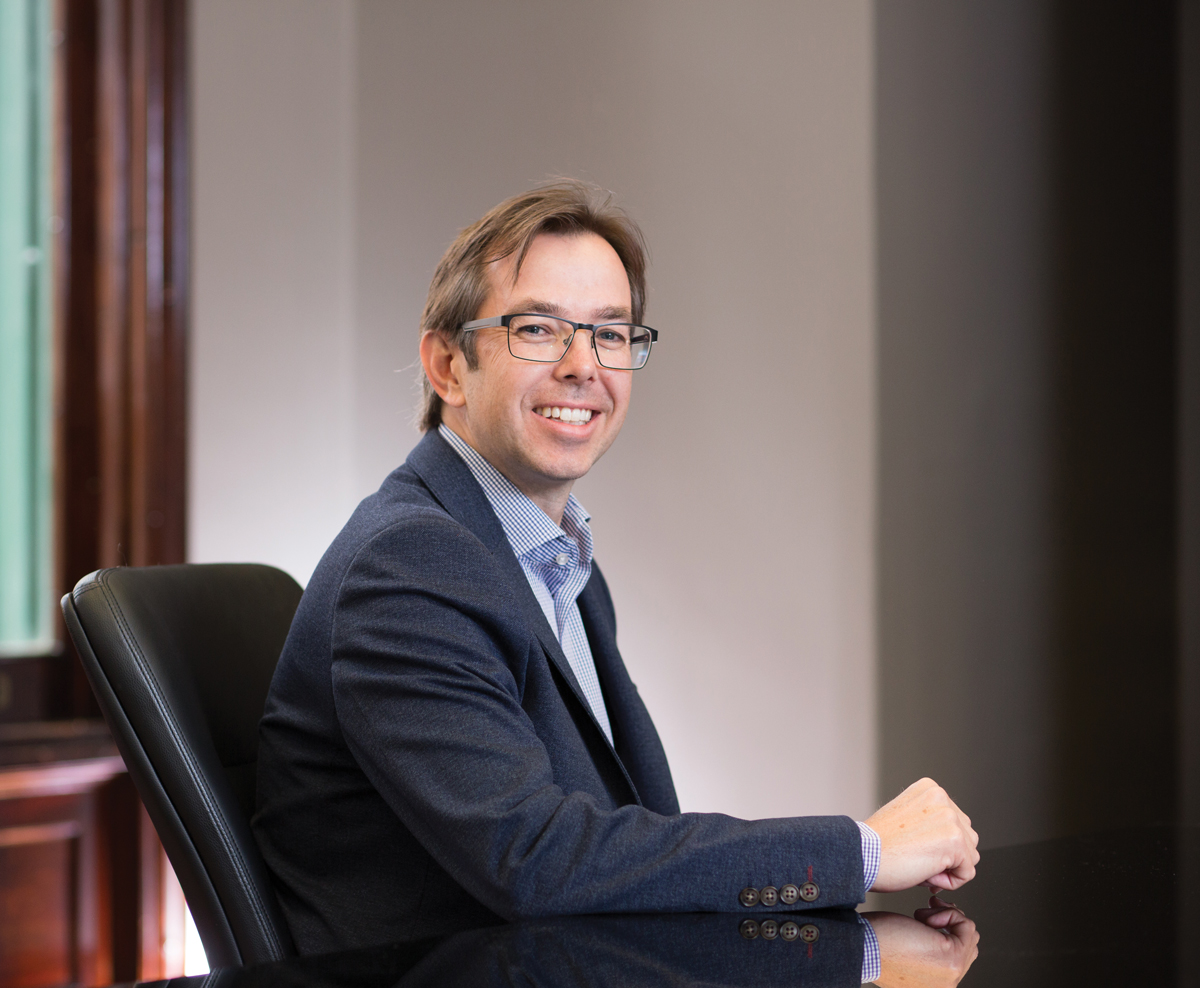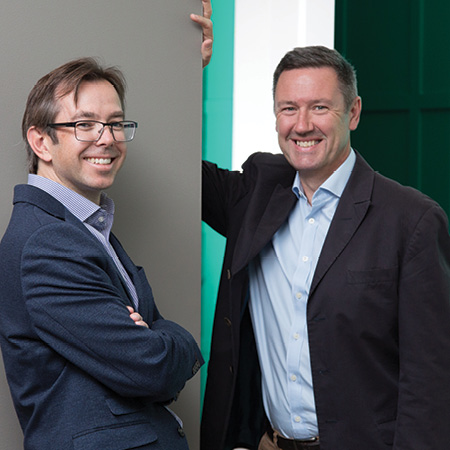Ever watched a film, seen a show, downloaded an app, or used the latest piece of technology and wondered who takes care of the legal side of things? Lawyers Gary Rogers and Nick Hart certainly have, as this is their world. The CEO Magazine chatted with them both about their law firm, Blueprint Law.
The CEO Magazine: You’ve worked as a commercial lawyer across many sectors. How did you come to establish Blueprint Law in Australia?
Gary: One of my previous positions was working at Taylor Joynson Garrett in London. At the time, it had the UK’s largest IP practice, and it was there that I began gaining experience across the film and music sectors. I then joined Channel 4 and, later, Channel 5 — 2 UK TV broadcasting stations where I was engaged on a number of difficult, high-profile projects. It was my [Australian] wife who persuaded me to come to Sydney in 1998. I first worked with international law specialists Coudert Brothers, which meant I was still working overseas on contracts in LA, Hong Kong and Singapore. After that, I joined Michell Sillar as a partner back in Australia. However, in 2004, I finally took the leap and set up my own firm.
What have been some of the highlights of your career?
Gary: To be honest, I didn’t know what I was getting myself into by becoming a lawyer. If anyone had told me about the long hours and stress, I’d have chosen something else! However, I had a fascination with copyright, and being a lawyer seemed a good way to pursue that. I was also interested in working with creative and entrepreneurial people, and it’s been extremely rewarding helping clients find the best way to pursue their passion whether it be a creative endeavour or establishing a new business. Our tagline, ‘advisers
to mavericks, disrupters and entrepreneurs’, describes our client base perfectly.

Do people in these sectors often need to seek specialist help, and what benefits do you provide?
Gary: We offer high-quality legal advice with a commercial and pragmatic approach based on our genuine understanding of our core sectors. We also take a more flexible approach to billing. We’ve moved away from the billable hour and provide most of our services for fixed fees, taking into account the client’s circumstances and the particular matter at hand. Occasionally, we’ll spend more time on a client than what we’ll get paid for, but our priority is providing them with the best-quality service. We find that initial investment helps build long-term relationships and hopefully long-term commitment. Because we have a genuine understanding of the industries in which our clients operate, we can take a more commercial approach as we guide them through a deal, knowing we have sufficient commercial insight to obtain the best possible outcome. We’re not afraid to stand up for clients either, as we represent their interests; the senior lawyers here have years of relevant in-house and industry experience.
What are your plans for future growth?
Gary: We’ll be recruiting more specialists and targeting more established clients in our sectors.
We’re a young, agile firm with a deliberately collegiate approach where everyone mucks in. There are no entrenched politics and protectionist attitudes. Everyone is involved in contributing to the general management and growth of the firm.

And, finally, what have been the highlights so far?
Gary: One of the biggest has been the arrival of my co-director, Nick Hart.
He’s talented and committed, and we have an incredibly similar philosophy
to providing legal services.
What made you decide to join Blueprint Law?
Nick: After working for law firms and as in-house counsel, I was Head of Legal and Business Affairs at Global Creatures, an international entertainment company specialising in theatrical experiences — anything from Walking with Dinosaurs to Strictly Ballroom the Musical. We engaged Blueprint Law to assist on some large projects, and I was hugely impressed with Gary’s work. The firm was doing first-class work, with a commercial, pragmatic approach but without the shackles of timesheets, bureaucracy and high overheads. It also had an enviable client base gained entirely from referrals. We continued working closely together, and during this time I had an idea to continue with the work
I was doing for Global Creatures while joining Blueprint to work again for clients in the technology, media and entertainment sectors and help grow its business and reputation. Two years on, it’s proven to be an exciting decision, allowing me to continue working with industry sectors I know and love while helping Blueprint achieve the higher profile it deserves.
You’ve also worked overseas in London and Singapore. What are some of the key learnings from those experiences that you apply today?
Nick: Our work is predominantly in the tech, media and entertainment sectors, but we see our business as international. Increasingly, too, our clients work across borders with overseas partners and customers, using technology and media that aren’t constrained by legal jurisdictions or time zones. Working overseas helped me identify different tax issues, cultural customs, or industry norms. Having said that, we’ve nurtured a trusted group of international advisers whom we can consult when necessary.
What’s your current strategy?
Nick: Our team has already grown to eight, including two senior lawyers, Ted Cawrey and Christine Newman, with excellent in-house experience in media, technology and finance. We want to attract other great lawyers keen to be part of the industries we represent, be it tech start-ups, online businesses, theatre or film producers or larger corporates. We’ve really focused on our branding of being lawyers to mavericks, disrupters and entrepreneurs, so we aim to recruit lawyers who think that way and wish to work with others who think that way as well.

“We want our clients to feel we are their de facto in-house lawyers and they can call us without worrying we’re starting the billing clock.” – Nick Hart
While all our senior lawyers have worked at large international firms — and we don’t knock those firms at all — we find there’s a lot of enjoyment in working with a smaller, less traditional firm that is also less formal and more responsive and industry-focused. We want our clients to feel we are their de facto in-house lawyers and they can call us without worrying we’re starting the billing clock. On top of all this, we also love getting involved in our chosen industries, whether by sponsoring events, providing voluntary or pro bono support, or through board memberships. I’m on the Board of the Hayes Theatre in Sydney, for example.
What else makes you stand out from the competition?
Nick: Although service providers like to sell themselves as experts across multiple sectors, you can’t be a specialist in every industry. We provide the full range of legal work across our industry sectors, but also have valuable real-life experience from working at the coalface with tech companies and in film, TV and theatre. We also consider ourselves to be more nimble than larger firms. For example, our rebranding started with a team meeting and evolved over many nights at the kitchen table with my wife and kids drawing our website images. Everyone at Blueprint gets involved and is free to choose their area of interest and run with it, whether it’s a particular area of law or handling our social media.
What have been some of the highlights?
Nick: The bedrock of what we do is delivering quality, tailored legal work for excellent value. That’s a constant highlight in an era in which, we believe, a personal approach is needed more than ever. In all aspects, from marketing to delivering legal services, Blueprint has allowed itself to simultaneously be creative, respond to new trends, and even start some of our own. Individual highlights have included sponsoring start-up events, speaking at a copyright symposium, and when Ted Cawrey joined us from Ingenious Media, throwing a Blueprint Law spring party with 50 clients and contacts sharing sunset drinks and good conversation on our Martin Place rooftop.



